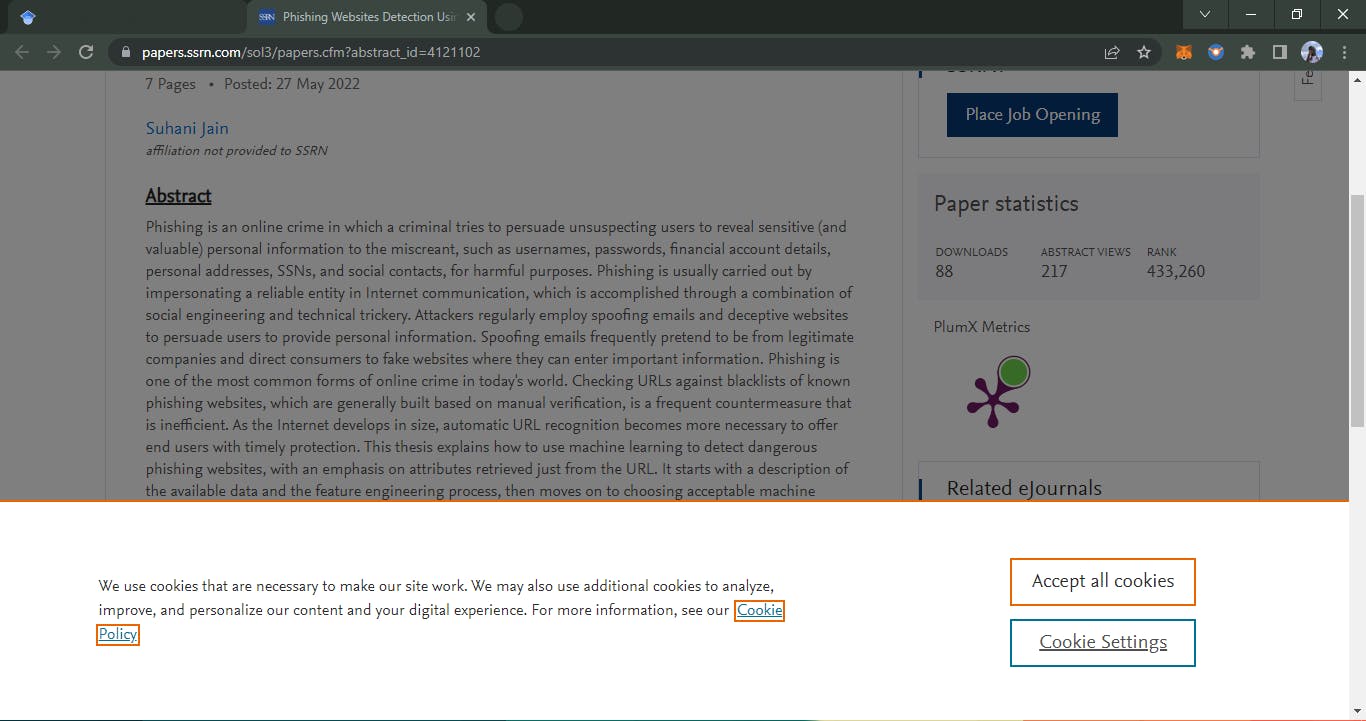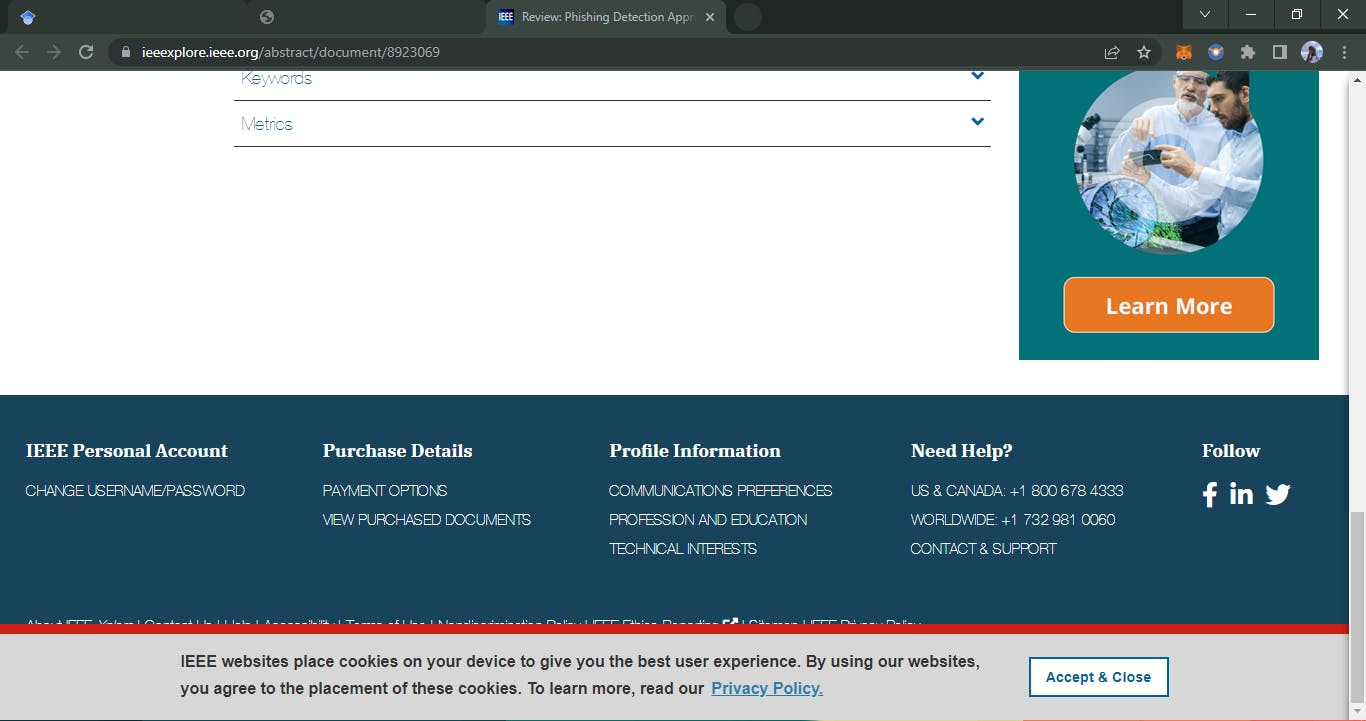Table of contents
Cookies are small data files that are created and stored on a user’s computer or device by a website. These files are used to store information about the user’s preferences and browsing behaviour on the website.
Cookies can be categorized into different types based on their lifespan and purpose. Session cookies are temporary cookies that are erased when the user closes the browser. Persistent cookies remain on the user’s device until they expire or are deleted by the user.
Cookies can be used for various purposes such as authentication, personalization, tracking, and analytics. For example, cookies can be used to remember a user’s login information, store items in a shopping cart, or track website usage to improve user experience.
However, cookies can also raise privacy concerns as they can potentially track a user’s online behaviour across multiple websites. Many web browsers offer options to control or disable cookies.
The working principle of cookies involves several steps:
When a user visits a website, the website sends a request to the user’s web browser to create a cookie.
The browser creates a small text file with a unique identifier and stores it on the user’s computer or device.
The website can now access and retrieve the information stored in the cookie by sending a request to the user’s browser.
The website can use this information to customize the user’s experience on the website. For example, it can remember the user’s preferences, login information, and browsing behaviour.
Cookies can also be used to track a user’s activity across multiple websites, allowing advertisers to show targeted ads based on the user’s interests.
The user can control cookies through their browser settings, which can allow them to block or delete cookies.
Overall, the working principle of cookies involves the exchange of information between a website and a user’s web browser to enhance the user’s experience and potentially track their online activity.

Types of Cookies
There are several types of cookies, each with its unique purpose and characteristics. Here are some of the most common types:
Session cookies: These cookies are temporary and are deleted when the user closes their web browser. They are used to store information about the user’s current browsing session, such as login information and shopping cart contents.
Persistent cookies: These cookies remain on the user’s device until they expire or are deleted by the user. They are used to store information that can be accessed across multiple browsing sessions, such as user preferences and login information.
First-party cookies: These cookies are created by the website the user is visiting and are used to store information related to the website’s functionality and user experience.
Third-party cookies: These cookies are created by a domain other than the website the user is visiting, such as advertisers or social media platforms. They are used to track a user’s activity across multiple websites for targeted advertising or analytics purposes.
Secure cookies: These cookies are only transmitted over an encrypted HTTPS connection, providing an additional layer of security for sensitive information such as login credentials.
HttpOnly cookies: These cookies can only be accessed through HTTP or HTTPS protocols, making them more secure against attacks such as cross-site scripting (XSS).
Overall, the types of cookies can vary based on their lifespan, purpose, and security features, but they all serve a specific role in enhancing the user’s browsing experience or tracking their online activity.

Why ask for Permission?
Cookie laws refer to regulations and directives that govern the use of cookies on websites. The laws aim to protect user privacy and provide transparency and control over collecting and processing personal data through cookies.
Some of the key cookie laws and regulations include:
General Data Protection Regulation (GDPR): This European Union (EU) regulation sets data protection and privacy standards for EU citizens. It requires websites to obtain user consent before using cookies and provide information about the types of cookies used and their purpose.
ePrivacy Directive: This EU directive requires websites to obtain user consent before using cookies and similar technologies for storing or accessing the information on a user’s device.
California Consumer Privacy Act (CCPA): This regulation provides California residents with the right to opt out of the sale of their personal information, including data collected through cookies.
General Data Protection Regulation (GDPR): This EU regulation requires websites to obtain user consent before using cookies and provide information about the types of cookies used and their purpose.
Cookie Law: This regulation requires websites in the EU to obtain user consent before using cookies and provide information about the types of cookies used and their purpose.
Website owners need to comply with cookie laws and regulations to avoid penalties and ensure the protection of user privacy. This includes providing clear and accessible information about the use of cookies on the website and obtaining user consent before using cookies.
How Cookies can be dangerous
Cookies can potentially be dangerous because they can be used to collect and share personal information without the user’s knowledge or consent. Here are some of the ways cookies can be dangerous:
Tracking: Cookies can be used to track a user’s online activity across multiple websites, which can be used for targeted advertising, analytics, and other purposes. This can be a privacy concern, as users may not be aware that their activity is being monitored and shared with third parties.
Security risks: Cookies can potentially be used for malicious purposes, such as stealing login credentials or personal information. For example, a hacker could create a fake login page that uses cookies to capture a user’s login information.
Vulnerabilities: Cookies can be vulnerable to attacks such as cross-site scripting (XSS), in which an attacker injects malicious code into a website to access or modify a user’s cookie data.
Misuse: Websites can misuse cookies to track or store sensitive information without the user’s consent, such as medical or financial data.
In summary, cookies can be dangerous when they are used to collect and share personal information without the user’s knowledge or consent. It is important for users to be aware of the types of cookies used on websites and to take steps to protect their privacy and security, such as using a trusted web browser and regularly clearing their cookie data.

